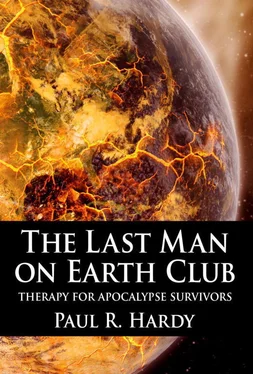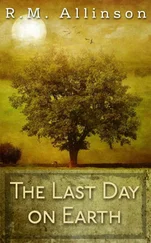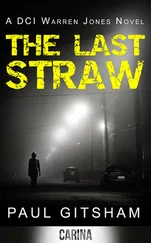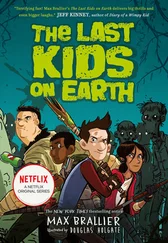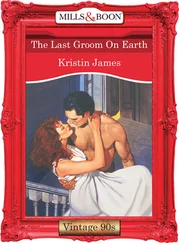I’d completely forgotten the clock. “So what now?”
“Vinegar sets the mustard. Keeps the flavour good while it’s still strong. Not too much…” She poured a small measure of vinegar into the mustard paste, and mixed it in. “And now I need a jar.”
I called the infirmary and had them send over a sterile specimen jar, marked with a biohazard symbol, which made Olivia laugh. She then decided to make herself a picnic, and invited me along. We set up a small table outside in a meadow overlooking a plunging valley and Olivia demonstrated how to make a sandwich such as she had enjoyed on her world: meat and bread and butter and mustard and nothing else.
“How long is it since you’ve had one of these?” I asked.
She thought about it. “About a year after we locked ourselves in. That’s when the mustard ran out. We got a bit more when we started raiding but then there wasn’t enough grain for bread. Not proper bread. Do you want one?”
“Er…”
“I’ll spread the mustard thin.”
“Okay. I’m glad I brought some water.”
“You won’t need it. Here.”
She made me a sandwich, and I tried it as a child might, nibbling at the edge. But the mustard filled my nostrils with fire and I choked. Olivia chuckled to herself.
“Too strong?”
I nodded as I gulped back water. Olivia ate her own sandwich with every sign of contentment.
“So,” I coughed, “what were you actually doing there, at Tringarrick?”
“Research. It was a research station. I told you that. Little place in the middle of bloody nowhere stuck in a load of hills. Damn hard to get into or out of. Nothing there except a couple of villages and a little coal mine. Somebody decided it would be a good place to hide in an outbreak, and you know what, they were right. That’s why so many of us went there.”
“Okay, but what kind of research were you doing?”
“Anything that would kill revenants. We tried making a spray out of the marinade to stop a crowd, but that was no good, it just killed their skin. Lots of work on antibiotics, but we never got anywhere, just made a mess of the test subjects.”
“You kept revenants, then?”
“Had to. Had to have something we could run tests on. There was never a shortage. Whenever we ran out, we just opened the gates and made a noise.”
“Were you completely isolated?”
“Not to begin with. We lost the cities but the government moved into castles and forts and all that. We had a lot of those left over from the wars of the last century. We kept in touch with radio, just had to keep the dynamo wound up. All those knobbly knees taking turns on the bike! Bloody hilarious. Children loved it until they realised it was work.”
“Were your children there?”
“Yeh.” She took a bite of her sandwich.
“What was it like for them?”
She shrugged as she chewed. “They thought it was an adventure. To begin with, anyway. All the researchers brought their children to the station when we realised things were going to get bad. They were in the local school and all the kids spoke the language thereabouts, which was Wealsc. Our ones started coming back home speaking bits and pieces of it. Then the flu came and we had to close the gates and that was it.”
“How did they take it?”
“They didn’t understand. Well, some of the older ones did but they didn’t like it. We had them in the storage bunker during the battle so they didn’t see that.”
“How old were they?”
“All sorts. We had a couple of two year olds, then everything up to sixteen.”
“I mean your children.”
She munched on her sandwich for a moment, thinking. “Ten and twelve.”
“Did they know by then? About their father?”
“Yeh.”
“What did they think?”
“I was the one telling them what to do and daddy was the one who used to give them presents and never told them they had to do their shoelaces up. Oh, they loved him.”
“Did you have any therapists they could go to?”
“I wasn’t sending them to those bloody witch doctors! It wasn’t like here. They’d have had them taking pills all day, I saw what that was like, children taking those were like revenants without the hunger. I wasn’t having that. They had to lump it.”
“But you saw therapists.”
“They made me. And they weren’t therapists, they were psychiatrists and they didn’t have the faintest idea what they were talking about. Kept wanting me to erase engrams or some other nonsense. One thing I’ll give you lot, you don’t talk rubbish. You know how brains work.”
“Hm. So your children were resentful?”
“Nothing a clip round the ear couldn’t fix. When they were young, anyway.”
“There’s one thing I haven’t asked…”
“Is there? Bloody hell, there’s a miracle and no mistake.”
“You’ve never told me their names.”
She chewed on her sandwich and looked out across the mountains.
“They’re dead and gone. What does it matter?”
“I’d like to know.”
“They haven’t even got graves, for gods’ sake.”
“But they had names.”
“Yeh.”
“Is this difficult for you…?”
“You’re not going out of your way to make it easy, are you?”
“They had names.”
“That’s right.”
“Have you forgotten?”
She whipped a look at me, full of rage. “I haven’t forgotten a damn thing!”
“Will it hurt to tell me?”
She looked away again and swallowed.
“Olivia?”
“Caterine. Vicktor. There, are you happy?”
“Which one was the eldest?”
“Caterine.”
“Thank you, Olivia.”
“Now leave me alone.”
“There’s one other question I wanted to ask.”
“Well bloody ask it then!”
“There were two revenants at the station when we found you.”
“Yeh.”
“You put them down before you tried to kill yourself.” She took a bite of her sandwich and didn’t answer. “Were they Caterine and Vicktor?”
She chewed on her sandwich for a time and stared out over the mountains.
“Olivia?”
She snapped back at me. “I’m having my sandwich. Can’t I do that in peace?”
I left her to her meal. She wasn’t enjoying it any more.
Pew buried himself in his studies, which seemed to be the only thing that would take his mind off his troubles. He retreated into his room whenever he could, so I popped in a couple of times each day to see how he was, and made sure he came out for meals, when he was usually quiet and would excuse himself as soon as he decently could.
It was only when I called him in to deal with an administrative matter that we made progress. His request to be placed on the euthanasia track had been processed swiftly, as they usually are. It’s easy to get into the programme, but extremely difficult to get as far as euthanasia. I’ve only seen it happen once; when the patient feels they have a chance of getting what they want, they tend to open up to their therapist, and healing begins. The euthanasia track saves many more people than it kills.
I needed Pew’s signature on the final document; he said the necessary words, scribbled his name, added his Hub ID code and thumbprinted the pad, and then I added my own codes and imprints as the witnessing officer.
“That’s it,” I said.
“That’s it?” he asked.
“Yes. That’s everything.”
“Can we start?”
“The next time we have a therapy session, Pew.”
“I, I want to start now.”
“It’s going to take a long time. There’s no need to rush into it.”
“I’ll tell you about Ley’ang.”
I stopped there. He was dreadfully pale, and sweating. “Are you sure? You don’t look very well.”
Читать дальше
